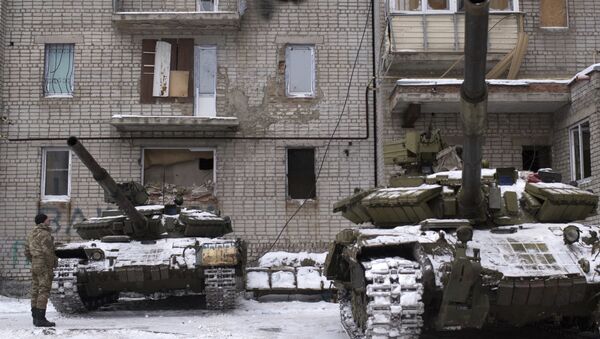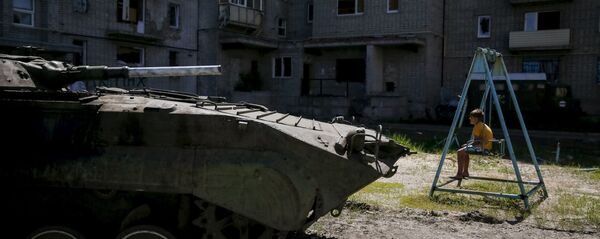"The separation of armed forces and the removal of heavy weapons should be a priority… The heads of state and government discussed, first and foremost, the importance of the withdrawal of heavy weapons and the withdrawal of troops in the most affected areas, of which France and Germany developed list," the statement published by German Chancellor's office said.
The leaders also instructed the working group on security of the Trilateral Contact Group "to identify and designate such zones at the next meeting on August 2" and stressed that the OSCE observers should be guaranteed safe access to all areas of the Donbass, including the Ukrainian-Russian border controlled by the militias.
The military conflict in Donbass has been ongoing since 2014 when Kiev launched a military operation against the region's local residents refusing to recognize the new Ukraine’s government which had come to power after what many considered to be coup.
The attempts to settle the crisis were undertaken as part of the Minsk agreements brokered by the so-called Normandy Four of Russia, France, Germany and Ukraine, which implied the establishment of the ceasefire regime in the eastern Ukrainian region. Despite the agreements, the parties to the conflict still continue mutual accusations of the regime violations.
The Trilateral Contact Group on Ukraine is a group of representatives from Ukraine, Russia, and the Organization for Security and Co-operation in Europe (OSCE) that has been formed as a means to facilitate a diplomatic resolution to the ongoing conflict in eastern Ukraine.




